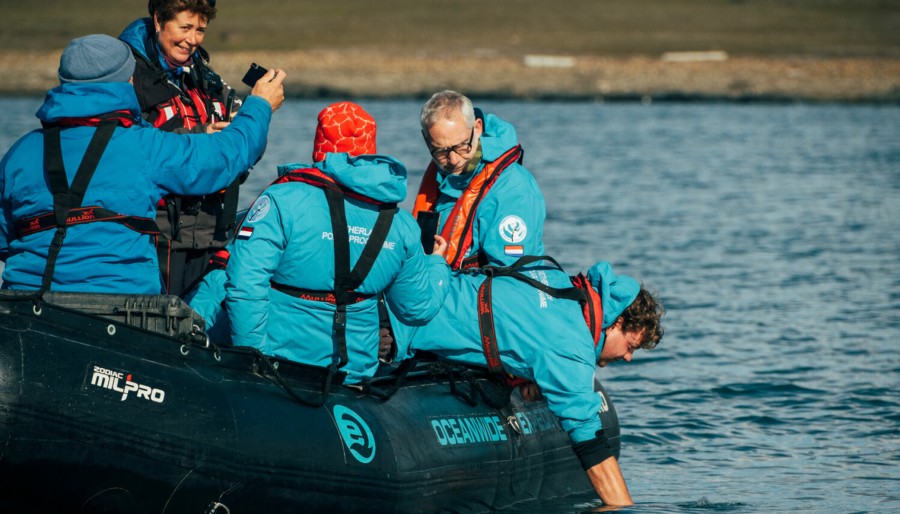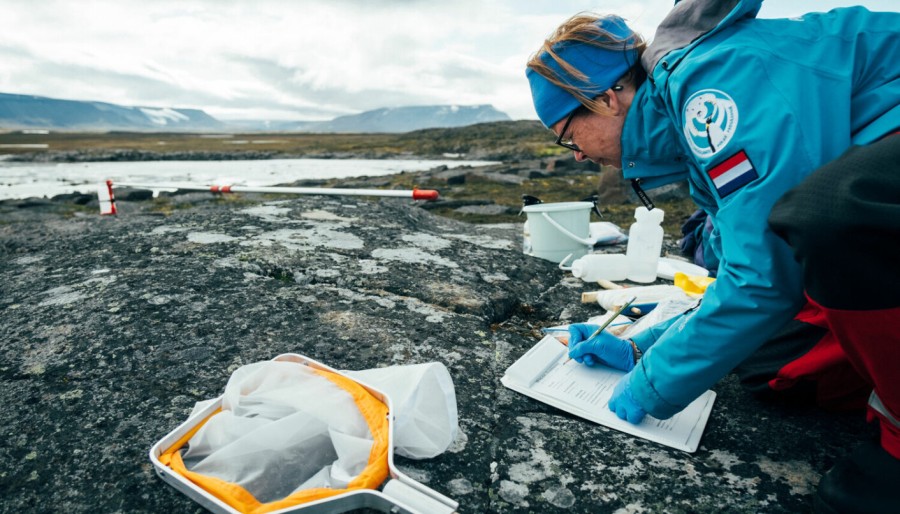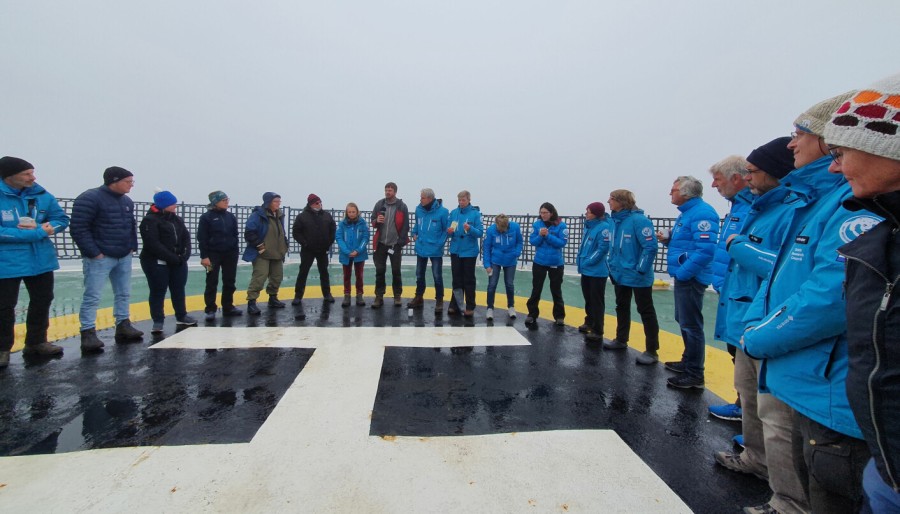


In July 2022, the Scientific Expedition Edge&oslasdh;ya Svalbard (the SEES expedition)
was organised as a combined scientific and touristic journey, gathering scientists
and paying tourists to monitor environmental and climate change in remote parts of
the Svalbard archipelago. A scientific report on passengers' experiences from the
expedition and views on (un)sustainable tourism and research based on a workshop
held on-board has now been published in The Polar Journal.
What makes an experience sustainable? Can polar cruise tourism in the High Arctic
ever be sustainable? If so, under what conditions? These questions are of particular
importance in Svalbard. Its rapidly developing tourism sector being an important part
of the Svalbard economy. Our purpose of the article is to contribute to ongoing
conversations on the paradoxes of sustainable polar tourism by sharing experiences
and perspectives on what sustainability can mean from a passenger point of view.

SEES 2022, activities on land. Foto: Dagmara Wojtanowicz
The SEES expedition is not a regular Arctic cruise since the primary ambition of SEES
was environmental monitoring of ecological variables and processes, including climate change.
A second purpose was to increase collaborations between scientists with different disciplinary
backgrounds. The cruise, operated by Oceanwide Expeditions, moreover, offered tourists
the opportunity to be part of the expedition and thereby become citizen scientists in the Arctic.
SEES attracted around 100 participants of different (mostly Dutch) nationalities,
with the majority being scientists (52) and tourists (35), accompanied by representatives
from the Dutch Research Council (4) and policymakers (3), journalists (7) and artists (1),
supported by guides (8) and the boat crew (44). Despite the unconventional passenger setup,
the SEES expedition brought together environmentally aware visitors and thus offers a
relevant platform to discuss the complexity of what sustainable tourism can mean from
diverse standpoints.
The on-board workshop revealed the greatest benefit gained from the expedition was setting foot
on land and interacting in person with people and places. Passengers stressed the importance
of human-environmental connection. The unique physical environment of Svalbard, the high Arctic
landscape and its inhabitants offer visitors the opportunity to develop deep emotional connection
through the physical experience of 'being there'. Some describe how they 'fell in love with the
Arctic', others remarked on the awe-inspiring beauty and feeling small at the same time.
Similarly, human-relational aspects developed by meeting, collaborating, sharing knowledge
and experiences also added value to SEES participants. The expedition generated support for
and passengers developed understanding of the conditions under which Arctic research is conducted.
Combining tourism with science provided tourists with a sense of legitimacy, articulating a reason
to explore Svalbard beyond one's individual pleasure.
There was an agreement among scientific and touristic passengers that current practices
of cruise tourism, with luxurious cruise ships travelling the remote high Arctic,
is not sustainable. Some experienced a change of heart, dubbing 'sustainable' cruise
tourism a 'contradiction in terms'. The SEES passengers suggested different ways of
limiting and reducing (the negative impacts of) tourism, while creatively seeking ways
to add value, through for example, combining citizen science and compulsory clean-ups of
beaches during landings. But the main tension persists. Should there be limits to the
number of visitors to these regions? Is sustainably experiencing Svalbard only possible
for a select few? Can combining tourism and scientific activities act legitimating? Or
is this a false argument to continue unsustainable practices? We hope the findings from
our research will get us closer to the answers to all these important questions.

Workshop on board. Foto: Annette Löf
Annette Löf, Zdenka Sokolíčková & Nathalie A. Steins (2023)
Experiencing Svalbard sustainably? Reflecting on what we can learn about polar cruise tourism
from the SEES expedition, The Polar Journal,
https://doi.org/10.1080/2154896X.2023.2205249
|